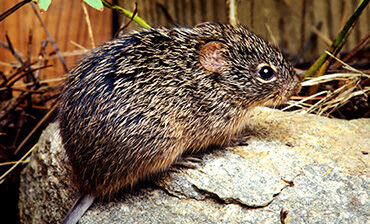Tularaemia

Tularaemia is a bacterial disease mainly found in the northern hemisphere.
The incubation period of tularaemia is usually 3–5 days but can vary depending on how infection occurs and the amount of bacteria a person is exposed to.
Early symptoms include:
-
fever
-
fatigue
-
chills
-
headache
Subsequently, the symptoms evolve according to where bacteria enter the body:
-
If they enter via ingestion of contaminated food or water, the primary symptom is a persistent inflammation of the throat.
-
Following an insect or tick bite, an ulcer forms at the site and nearby lymph nodes become inflamed.
-
Following contamination of the outer membrane of the eye, there can be inflammation of the eye and swelling of the nearby lymph glands occurs.
-
If the bacteria are inhaled or following a systemic infection, they enter the lungs causing a lung infection.
-
Irrespective of the route of entry of the bacteria, a typhoidal form with severe symptoms may occur.
People involved in hunting, wildlife management, hiking and camping should be aware of the different modes of transmission of the disease and are more at risk.
The mortality rate is roughly 2% when treated appropriately, but rises to between 5% and 15% without intervention.
Wild and domestic animals like rabbits, rodents, and ticks can pass on tularaemia to people. This can happen in several ways, including:
-
eating or drinking something that has been contaminated
-
touching infected animals
-
getting bitten by certain insects
-
breathing contaminated dust
-
accidental laboratory exposure
There is currently no effective and safe vaccine against tularaemia, treatment is based on the use of antibiotics. Usually infected people recover completely, but some may need a long period of convalescence.
Prevention measures consist of:
-
avoiding drinking untreated surface water
-
using insect repellent and clothes covering legs and arms to avoid tick and mosquito bites
-
avoiding contact with dead animals
-
using gloves when handling wild animals
-
not mowing over sick or dead animals
-
thoroughly cooking game meat before eating it
Latest outputs
The Surveillance Atlas of Infectious Diseases is a tool that interacts with the latest available data about a number of infectious diseases. The interface allows users to interact and manipulate the data to produce a variety of tables and maps.




